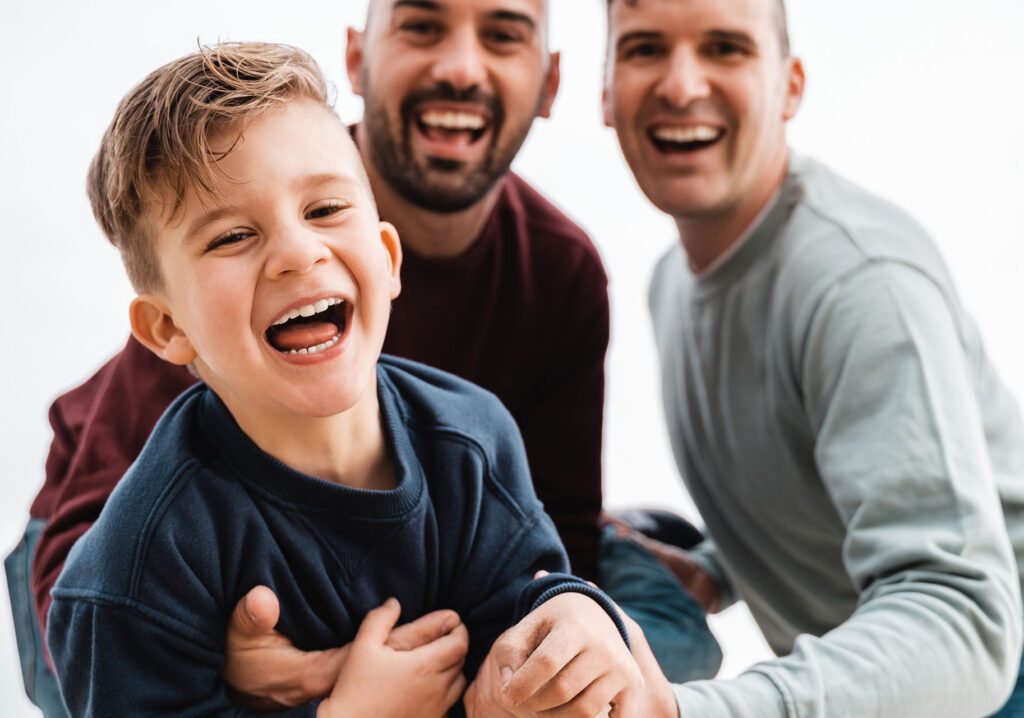“But I don’t work with these families.”

IF YOU DON’T HAVE ANY RAINBOW FAMILIES in your early childhood program at the moment, do you really need to re-examine your practices and policies?
The answer is a resounding yes! Read on to find out why.
- Erasure and invisibility are harmful to children and families, whether they are enrolled in your program or not. By failing to address the reality of Rainbow families in your classroom, you are missing an opportunity to educate all children about family diversity. Even if these families are not present in your program, they should be present in your curriculum.
- If you put this work off until Rainbow families enter your program, you’ll miss important opportunities to welcome and support them when they need it most.
- It’s not an overnight process. You’ll need time to review your practices and policies, discern where improvement is needed, and implement systemic change. Over time, as you develop a more nuanced understanding of the needs and experiences of Rainbow families, you’ll become aware of additional steps that you can take to make your program more inclusive.
- It’s very possible that LGBTQ+ parents and caregivers already belong to your early childhood community. But they may not yet feel safe or supported enough to make their presence known. It’s your responsibility to consider this possibility and ask yourself the following questions:
- How will Rainbow families know that they will be welcomed and valued in my program?
- How can I support struggling LGBTQ+ caregivers?
- Where am I on my journey toward growth and a deeper understanding of my ethical responsibilities toward LGBTQ+ families?
- An inclusive early childhood program helps all children. Here’s how:
- Children attending an LGTBQ+ inclusive early childhood program learn how to include their peers and offer help when needed.
- They enter elementary school with an awareness of different kinds of families.
- They have a greater capacity for empathy.
- They are less likely to perpetuate harmful stereotypes.
- They are less likely to continue the cycle of erasure and explicit and implicit harm.
- They are more likely to speak out against injustice and take action to promote positive change.